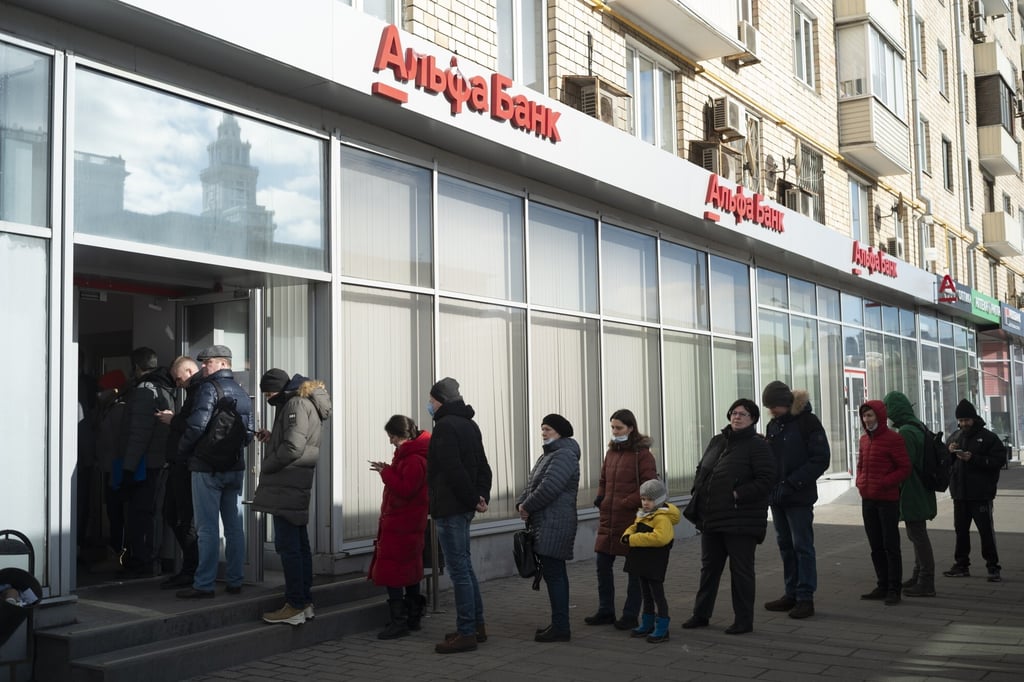Ukraine war: US stops Russian bond payments in bid to raise pressure on Moscow and a potential default
- Move is designed to force Moscow into choosing three unappealing options, draining dollar reserves held in Russia, spending new revenue, or going into default
- A default would prohibit Moscow from accessing certain markets until creditors are fully repaid and any legal cases stemming from the default are settled

The US Treasury has halted dollar debt payments from Russian government accounts at US banks, increasing pressure on Moscow to find alternative funding sources to pay bond investors.
The move is designed to force Russia into choosing among three unappealing options – draining dollar reserves held in its own country, spending new revenue, or going into default, said a spokesperson for the Treasury’s Office of Foreign Assets Control who discussed details of the decision on condition of anonymity.
The change comes as a payment on the country’s sovereign debt was due on Monday and is intended to further ratchet up pressure on Russian President Vladimir Putin to end his invasion of Ukraine. It follows accusations over the weekend that Russian troops massacred civilians in Bucha and other Ukrainian towns.
A carve-out in US policies has allowed overseas and US investors so far to receive payments on Russian foreign-currency debt, even as restrictions complicate the process. The exemption is set to expire on May 25.
“It seems to me that it is a U-turn of what the US government allowed on March 17, when Russia paid a US$117 million coupon,” said Carl Wong, head of fixed income at Avenue Asset Management Ltd. in Hong Kong, which does not own any Russian dollar debt.
Despite warnings from credit-rating companies and others, Putin’s government has so far stayed current on its foreign debt obligations – many of which have been relatively small when compared to its full load. A once-$2 billion dollar bond that matured Monday served as the most recent stress test, though Russia was able to buy back about three-quarters of the outstanding amount in roubles before the note came due.

The latest US move will intensify scrutiny on payments due May 27 for interest owed on sovereign dollar and euro notes due in 2026 and 2036, data compiled by Bloomberg show.
